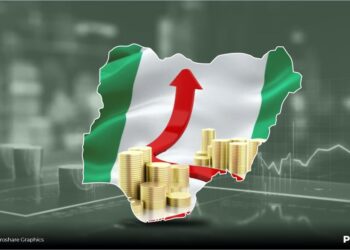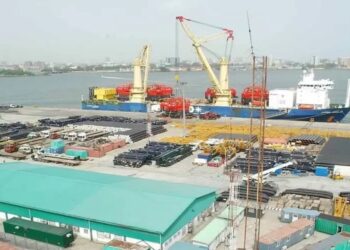On Monday, October 23, 2023, in a stunning victory for Nigeria, the High Court in London set aside the arbitration award obtained in January 2017 by P&ID, a British Virgin Islands registered company, against Nigeria.
The award was originally for about $6.6billion but had increased to about $11billion as of the date of the court judgment because of interest. P&ID had brought the claim against Nigeria before the arbitral tribunal, alleging that Nigeria breached a Gas Supply and Purchase Agreement to supply gas to a P&ID project that was to be located in Calabar, Cross River State.
Nigeria successfully obtained leave of the High Court in London in September 2020 to appeal against the arbitral tribunal award. Hearing on the appeal took place for eight weeks between January and March this year. While Nigeria’s victory has brought enormous relief to the country, it is crucial to understand the basis for the judgment of the court and the lessons the country should learn from the case.
Several allegations of corruption were at the centre of Nigeria’s challenge to the arbitration award. Nigeria alleged that P&ID paid bribes to several officials of the Nigerian government involved in the entry into the GSPA between Nigeria and P&ID between 2009 and 2010. Among the officials alleged to have been corrupted by P&ID were the former minister of petroleum resources, the late Alhaji Rilwanu Lukman, a former NNPC official, the late Mr Taofiq Tijani, and a former director of legal services, the late Mrs Grace Taiga.
It was also alleged that P&ID paid bribes to the first lead external counsel for Nigeria during the arbitration proceedings, Mr Supo Shasore(SAN), and government lawyers that advised on the arbitration, including then Director of Legal Services in the Ministry of Petroleum Resources, Mrs Kemi Adelore; and then Coordinator, Legal Services of the NNPC, Mr Ikechukwu Oguine, and that these lawyers colluded with P&ID to ‘throw’ the case.
Another key allegation made by Nigeria was that P&ID told lies to the arbitral tribunal to secure the award. These lies included claims that it had obtained the financing and completed the engineering for the Calabar project when in fact, it had not done either. These lies amounted to perjury and had deceived the tribunal into making the award in P&ID’s favour. P&ID denied all the allegations and asserted that Nigeria lost the arbitration proceedings because of incompetence on the part of its officials responsible.
The court upheld the allegations made regarding the late Taiga and found that some payments she received from P&ID were indeed bribes. The payments continued until 2020 when the arbitration was in progress, and the court held that P&ID continued to make payments to Taiga to ensure she did not reveal the earlier payments made to her. Thus, the dealings between P&ID and Taiga related not just to the entry into the GSPA, but also tainted the arbitration proceedings.
This was one of the main grounds on which the arbitration award was set aside. The court dismissed Nigeria’s allegations of corruption against the late Alhaji Lukman for lack of evidence. Also, it dismissed the allegations against the lawyers who were involved on Nigeria’s behalf in the arbitration. The court instead found that the lawyers had represented Nigeria honestly and made concerted efforts to resolve the matter in Nigeria’s interest. Concerning Shasore, the court highlighted several steps he took to defend Nigeria. It noted that the people to blame for any failings in Nigeria’s defence were the senior officials of the Nigerian government who took no action on several recommendations made to them by Mr Shasore on how best to defend the case at the arbitral tribunal.
The court agreed with Nigeria that P&ID had lied to the arbitral tribunal about how much progress it had made in obtaining financing and in performing the engineering for the project. These lies, the court found, assisted P&ID in securing the award.
A P&ID witness, the late Mr Michael Quinn, had given a witness statement to the arbitral tribunal purporting to set out how the GSPA had been entered into. The statement did not mention the payments made by P&ID to Taiga. The court held that if the arbitral tribunal had been aware of the said payments, its decision would likely have been different. That concealment, in the court’s view, amounted also to perjury. These examples of perjury on P&ID’s part constituted the second major basis for the setting aside of the award.
One of the major lessons from the case is that the nation must ensure that contracts entered into by the government are prepared by competent and experienced legal practitioners and other experts. The court was very critical of the GSPA and the obligations that Nigeria assumed under the contract. While setting aside the award, it noted that Nigeria had failed to provide the right resources for entering into such a significant contract.
Another obvious lesson is that senior government officials entrusted with decision-making power must show a strong sense of responsibility and should be held accountable where they do not. The tribunal identified several instances where key recommendations concerning the arbitration were not acted upon by the officials responsible, including the ministers of justice, and petroleum resources. The court has come to Nigeria’s rescue this time, but it is clear from the judgment that if the heads of the relevant ministries had performed their duties effectively, this case might not have arisen at all.
Jerry Amao writes via Jerryamao@gmail.com





